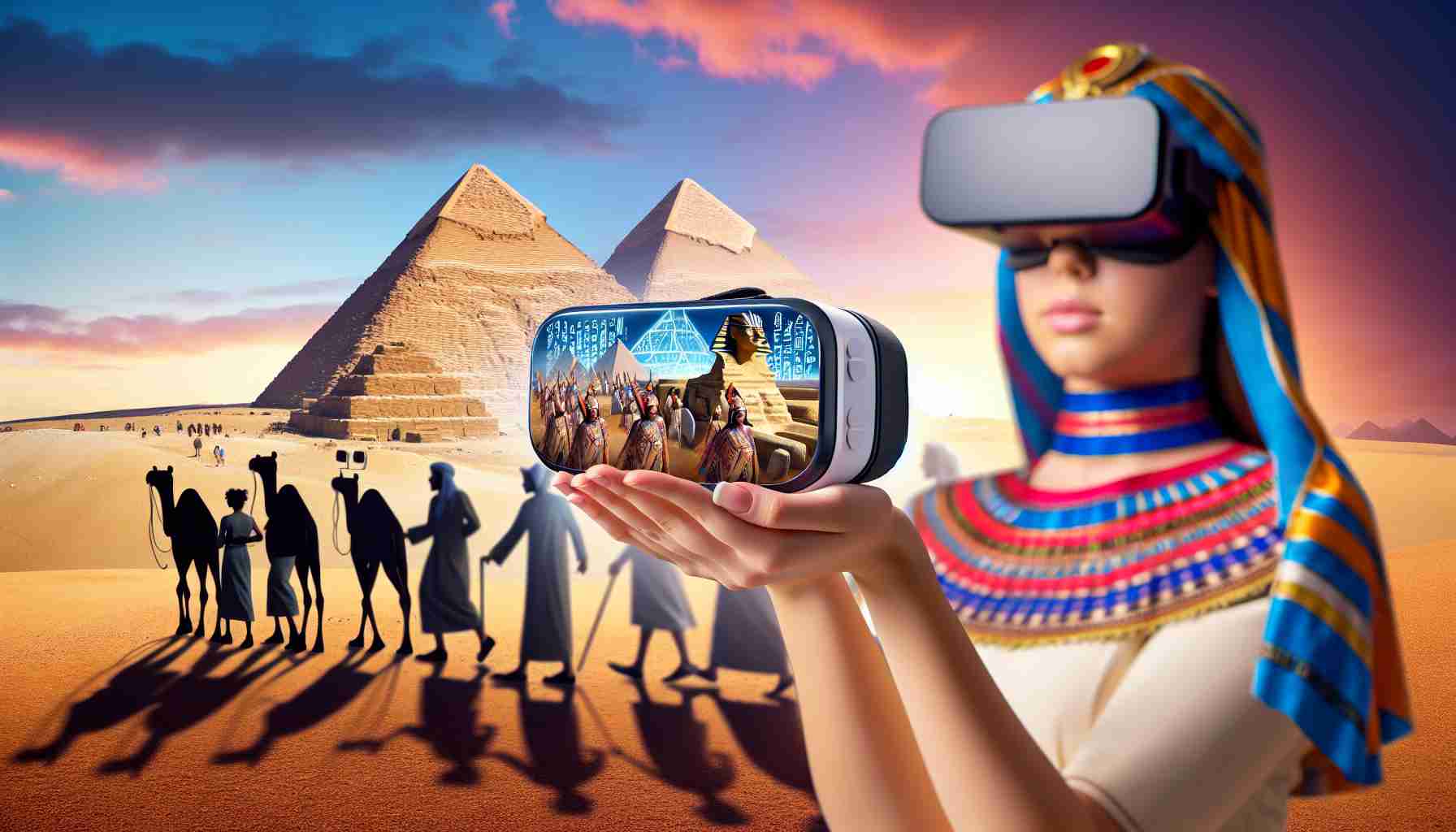Virtual reality (VR) technology has emerged as a game-changer in the world of travel, and its impact on Egypt’s tourism industry is nothing short of remarkable. With its rich history and captivating attractions, Egypt has long been a favorite destination for travelers. Now, VR integration is taking the tourism experience to new heights, captivating and inspiring a new generation of explorers.
One of the most exciting applications of VR in Egyptian tourism is the virtual tours offered at iconic sites. Visitors can now immerse themselves in the King Tut Hall in the Egyptian Museum in Cairo, exploring the intricate details of Tutankhamun’s tomb as if they were standing within its sacred chambers. The Museum of Islamic Art in Cairo and the Abu Serga Church have also embraced VR, allowing travelers to virtually wander through these magnificent spaces and marvel at their architectural wonders.
The American Research Center in Egypt (ARCE) is another organization making use of VR for edutainment and public dissemination. They provide virtual tours of historic sites such as the Monastery of Anthony, the Villa of the Birds, Khonsu Temple, and various ancient Egyptian tombs and artifacts. These virtual experiences give potential visitors from around the world a taste of Egypt’s treasures, inspiring them to book their dream trips to the country.
While VR can never fully replace the authenticity of visiting these sites in person, it offers a glimpse into the wonders that await travelers. Imagine someone in Europe or North America being able to explore the bustling streets of Cairo or the Pyramids of Giza without leaving their home. These virtual experiences can shatter preconceptions and ignite a genuine desire to witness Egypt’s wonders firsthand.
However, the integration of VR in Egyptian tourism comes with its challenges. Striking the right balance between the virtual and physical experience is crucial to maintaining the sense of wonder and authenticity. Additionally, ensuring the accessibility and affordability of VR technology is essential to make its benefits accessible to a diverse range of travelers.
As more and more travelers are drawn to the captivating experiences offered by VR, Egypt’s tourism industry is poised to reach new heights. VR technology showcases the country’s wealth of history, culture, and natural beauty to the world, enticing visitors to embark on their own Egyptian adventures. The strategic deployment of VR promises to be a driving force that continues to attract and captivate travelers, ensuring that Egypt’s allure remains as strong as ever.
Additional Facts:
– VR technology has also been used in Egypt to create immersive virtual reality games that allow players to explore ancient Egyptian mythologies and historical narratives.
– Egyptian travel agencies have started incorporating VR technology in their marketing campaigns, showcasing virtual tours and experiences to potential tourists.
– VR technology has the potential to increase the accessibility of Egyptian tourism, allowing people with mobility issues or physical disabilities to experience the country’s attractions.
– In addition to virtual tours, VR can also be used for educational purposes, providing virtual classrooms where students can learn about Egypt’s history, architecture, and culture.
– Some hotels and resorts in Egypt have started offering VR experiences as part of their guest services, allowing visitors to interact with virtual environments and activities.
Key Questions and Answers:
1. How does VR technology enhance the tourism experience in Egypt?
Answer: VR technology allows tourists to take virtual tours of iconic sites, explore historical artifacts, and immerse themselves in the culture and beauty of Egypt without physically being present.
2. What are the challenges associated with the integration of VR in Egyptian tourism?
Answer: Striking the right balance between the virtual and physical experience and ensuring the accessibility and affordability of VR technology are key challenges.
3. What are the advantages of using VR technology in Egyptian tourism?
Answer: VR technology can significantly enhance the marketing efforts of travel agencies, increase accessibility for people with disabilities, and provide educational opportunities.
4. What are the disadvantages of using VR technology in Egyptian tourism?
Answer: VR technology can never fully replace the authenticity and sensory experience of visiting the sites in person. It also requires investment in equipment and technology, which may not be affordable for all travelers.
Key Challenges and Controversies:
1. Maintaining the balance between virtual and physical experience: Ensuring that VR does not detract from the authenticity and wonder of actually visiting the sites is a challenge. Finding the right balance is crucial to maintain the integrity of the tourism experience.
2. Accessibility and affordability: Making VR technology accessible and affordable to a wide range of travelers can be a challenge. Ensuring that VR experiences are not limited to a select few, but are accessible to all, is important for inclusivity in tourism.
Advantages:
– Enhanced marketing and promotional opportunities for Egyptian tourism.
– Increased accessibility for people with physical disabilities or mobility issues.
– Educational opportunities for students and virtual classrooms.
– Ability to showcase a wider range of attractions and experiences to potential tourists.
Disadvantages:
– Can never fully replace the authenticity and sensory experience of visiting sites in person.
– Requires investment in technology and equipment, making it inaccessible to some travelers.
– Potential overreliance on VR technology, which may impact the physical tourism industry.
Suggested Related Links:
– Official website of the Egyptian Tourism Authority
– Website of the American Research Center in Egypt



















